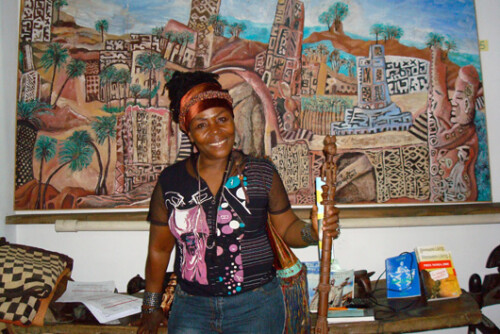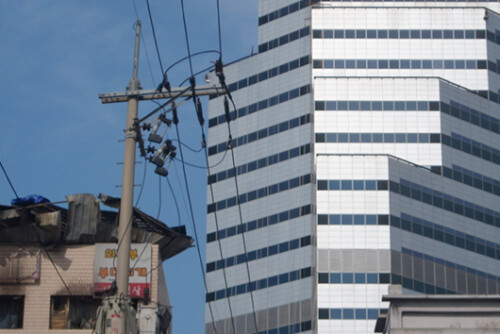Rethinking . . .
We can reasonably conclude that, as demonstrated in the institutions studied, marked gender inequalities have persisted in African universities. Overwhelmingly, patriarchal gender cultures are sustained through unquestioned everyday procedures, practices, and values. The academic hierarchies of privilege and patronage are imbued with dynamics that disadvantage women. These dynamics characterize relationships between students and lecturers, and between and within the ranks of both, making it harder for women to succeed and limiting the extent to which they can benefit from the formal and informal collegial relationships that play a key role in academic life. Women remain vulnerable to actual sexual pressure and to the even more pervasive perception of women in terms of their sexuality. They also experience more generalized discomforts arising from andocentric discourses on gender that permeate academic culture. Beyond this gross overall picture, there are wide national and institutional variations in the overall picture of historically-entrenched and hierarchized gender differentiation, along with variations due to age, era, policy climate, disciplinary hierarchies, facilities, class, ethnicity, marital status, and other dimensions of status.
Public universities, while they seem clear about their role in producing generations of well-educated citizens, seem to have remained largely oblivious to the challenges of gender inequality. By not acting to facilitate some level of redress, they end up perpetuating an unequal status quo. Thus far, the university administrators seem to remain reluctant to acknowledge that gender inequality is in fact an intrinsic feature of university life. Correspondingly, they also remain resistant to the idea of supporting and committing resources to taking concerted action against it. Most still believe that gender inequality is not the responsibility of higher education, and, therefore, most do not see the need to take any action to address the perpetuation of inequality within the institutions they lead.
In this context, the implications of globalization are far from simple. The preliminary analyses that are available suggest that contemporary trends in higher education financing and governance may well run the risk of curbing the greater access gained by the proliferation of African public universities since independence. The inclusion of higher education services in General Agreements on Trade and Tariffs (GATTS), for example, is likely to exacerbate a status quo in which the U.S. dominates the provision of “higher education services” and further marginalizes African institutions from national and local interests and agendas as they struggle to compete in an unequal market (AAU 2004). As universities become less accountable to the local public and more accountable to the global market, longstanding social justice agendas, including those of gender equality, need to be defended anew.
The evidence discussed suggests that universities in Africa will need to rethink the manner in which they discharge their responsibilities, if they are indeed to be re-vitalized in a manner that sees them become institutions that advance the democratic and social justice agendas that the African people are once again embracing as they move beyond the legacies of our difficult history and struggle to become peaceful, democratic, and just societies. Gender justice lies at the heart of these aspirations, and public universities have a responsibility to take this a great deal more seriously than has so far been the case.
References
ASHEWA. 2007. Study on Student Enrolments at Tertiary Institutions. Report, Harare, HopeAfrica.
African Gender Institute. 2007. Gender and Institutional Culture in Selected AfricanUniversities. Research report to the Association of African Universities.
Ajayi, J., Goma, L. and Ampah Johnson, G., eds. 1996. The African Experience with Higher Education. Oxford: James Currey/Accra: Association of African Universities.
Barnes, T. 2007. “Politics of the Mind and Body: Gender and Institutional Culture in African Universities.” Feminist Africa 8: 8-25.
Barnes, T & Mama, A. 2007. “Editorial: Rethinking Universities II.” Feminist Africa 9.
Bennett, J. 2003. “Exploration of a Gap: Strategizing Gender Equity in African Universities.” Feminist Africa 1: 34-65.
Bennett, J., ed. 2005. Killing a Virus with Stones? Research on the Implementation of Policies Against Sexual Harrassment in Southern African Higher Education. African Gender Institute, University of Cape Town.
Bennett, J. and Reddy, V. 2007. “Feeling the Disconnect: Teaching Sexualities and Gender in South African Higher Education.” Feminist Africa, 8:43-62.
Denzer, L. 1995. “Introduction,” in Denzer (ed.) C.A. Cummings-John Memoirs of a Krio Leader, Ibadan: Spectrum Books.
Diaw, A. 2007. “Sewing Machines and Computers? Seeing Gender in Institutional and Intellectual Cultures at the Cheikh Anta Diop University of Dakar, Senegal.” Feminist Africa 9: 5-22.
Endeley, J.B. and Ngaling, M.N. 2007. “Challenging Gender Inequality in Higher Education: Attitudes and Perceptions of Teaching Staff and Administrators at the University of Buea, Cameroon.” Feminist Africa 9:63-84.
Gaidzanwa, R. 1997. “Gender Analysis in the Field of Education: A Zimbabwean Example,” in Imam, A., Mama, A. and Sow, F., eds. Engendering African Social Sciences. Dakar: CODESRIA.
Gaidzanwa, R ,ed. 2001. “Speaking for Ourselves: Masculinities and Femininities Amongst Students at the University of Zimbabwe.” University of Zimbabwe Affirmative Action Project.
Gaidzanwa, R.B. 2007. “Alienation, Gender and Institutional Culture at the University of Zimbabwe.” Feminist Africa 8: 60-82.
Imam, A., Mama, A. and Sow, F. 1996. Engendering African Social Sciences. Dakar: CODESRIA.
Kasente, D. 2001. “Popularising Gender: A Case Study of Makerere.” University paper commissioned for FAWE and presented at 10th General Conference of the Association of African Universities, Nairobi, September.
Kasente, D. 2002. “Institutionalising Gender Equality in African Universities: Women’s and Gender Studies at Makerere University.” Feminist Africa 1: 91-99.
Kwesiga, J. 2002. Women’s Access to Higher Education in Africa: Uganda’s Experience. Kampala: Fountain Publishers.
Makhubu, L. 1998. “The Right to Higher Education and Equal Opportunity, Particularly for Women.” Higher Education in Africa: Achievements, Challenges, and Prospects. Dakar: UNESCO Regional Office for Education in Africa.
Mama, A. 1996. Women’s Studies and Studies of Women in Africa during the 1990s. Dakar: CODESRIA.
Mama, A 2003. “Editorial: Intellectual Politics.” Feminist Africa 1, African Gender Institute.
Mama 2006. “Feminist Studies in African Contexts: The Challenge of Transformative Teaching in African Universities,” in P. Zeleza, ed. The Study of Africa, Vol 1: Disciplinary and Interdisciplinary Encounters. Dakar: CODESRIA.
Mama, A. & Barnes T. 2007. “Editorial: Rethinking Universities.” Feminist Africa 8.
Manuh, T, Gariba, S. and Budu, J. 2007. “Change and Transformation in Ghana’s Publicly Funded Universities.” Partnership for Higher Education, James Currey/Woeli, Accra.
Namuddu, K. 1995. “Gender Perspectives in the Transformation of Africa: Challenges to the African University as a Model to Society.” Women and Higher Education in Africa. Dakar: UNESCO 1995.
Odejide, O. 2007. “What Can a Woman Do? Being Women in a Nigerian University.” Feminist Africa 8: 42-59.
Pereira, C. 2002. “Between Knowing and Imagining —What Space for Feminist Scholarship on Africa?” Feminist Africa 1: 9-35.
Rathberger, E. 2002. (In Press). “Women in Universities and University-Educated Women: The Current Situation in Africa,” in Teferra, D. and Altbach, P., eds. African Higher Education: An International Reference Handbook. Bloomington, Indiana: Indiana University Press.
Sall, E. 2000. Women in Academia: Gender and Academic Freedom in Africa. Dakar: CODESRIA.
Sawyerr, A. 2002. Challenges Facing African Universities: Selected Issues. Paper presented at the 45th annual meeting of the African studies Association, Washington DC, 5-8th Dec.
Tamale, S. and Oloka-Onyango. 2000. “Bitches at the Academy: Gender and Academic Freedom in Africa,” in E. Sall Women in Academia: Gender and Academic Freedom in Africa. Dakar: CODESRIA.
Tsikata, D. 2007. “Gender, Institutional Cultures and the Career Trajectories of Faculty of the University of Ghana.” Feminist Africa 8: 26-41.
World Bank. 2002. “Constructing Knowledge Societies: New Challenges for Tertiary Education. Washington D.C.



